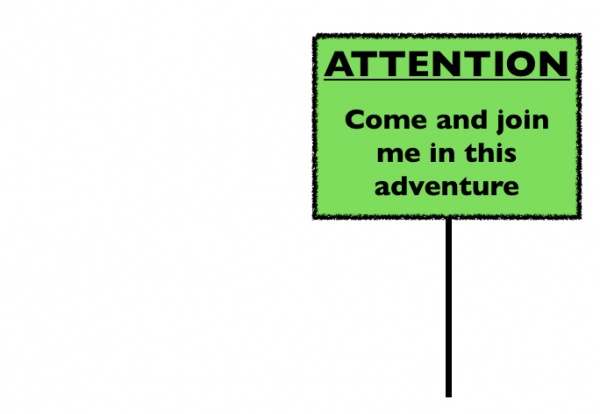I have been thinking about this question for a while and written bits and pieces on the topic before.
Like many other mini-research projects, I embarked on a journey to find out the answer. Here is what I found – some reasons may be obvious but may be not all of them. You be the judge
Here are the reasons (in no particular order)
[ Note: “You” is used in the article for simplicity and not to imply that you face these issues ]
1. You may NOT be communicating well enough: People buy-in to the story they are told. If the story is not communicated well, there is nothing to buy-in. Granted, the vision is clear in your head but you have not taken the time to craft a story to make it clear to the audience. Without a good story, all bets are off.
2. Buy-in requires future mindshare commitment: Buying-in to a concept is not a spot activity but a promise for future investment of time, energy and mindshare. Some smart people don’t realize that they are not just asking for “Yes” now but a “Yes” now AND a future commitment for a long period of time. Not everyone is ready to make that commitment. Solution? Make the ask smaller and more digestible and one can always expand the scope later.
3. They didn’t address the “belief filter” right: One step before the buy-in happens, the audience needs to believe the story. Every person passes new ideas through their own “belief filters”. One person’s belief filter may include a simple smell-test of future potential and they should be fine to move to the next stage. On the other extreme, their “belief filter” may include an elaborate investigation of proof points on your claims. There is a spectrum out there on how people view the world. What needs to be presented on one end of the spectrum is different from what needs to be presented on the other end of the spectrum. Many people tell the SAME story to everyone and are baffled that only a few people “get it.”
4. Your story involves no participation from the listener: Your story is good for you but how is it good for the listener. If you want your listener to buy-in, then you better tell a story that involves them or else it’s a lost cause. It is too much work for the listener to figure that part out on their own.
5. Your proposition is flawed and they are too polite to point it out: You present an idea and they nod their head in agreement. At least that’s what you think but in their mind the proposition is flawed AND they just don’t want to bother or have the energy to argue and fix it. It is low-cost for them to just indicate agreement but move on to other things rather than debate about it. If you mistake their politeness to be a form of support, you are mistaken. Confronting reality may give you short-term pain but it’s better than long-term misery.
6. They don’t see a positive possibility for their future as a result of buying-in: As we covered before, buying-in to an idea is a serious investment of resources now and in the future. It makes sense to invest those resources if they see a positive possibility for their future post buying-in. They need to see this in comparison to the already available alternate opportunities as the opportunity you presented will COMPETE with alternate available options. It is your job to establish the value and communicate it.
7. They have to buy-in to YOU first! This is probably the biggest and most overlooked reason. People work with people and your listeners are no different. If you have not given enough reasons to buy-in to YOU first, there is no point in presenting an opportunity as that won’t even be considered
In summary, your smartness helps but does not give you a passport to get buy-in to your ideas. You need to both – work on yourself PLUS work on your ideas to make them compelling.
What next?
Please read: How to Sell Your Ideas

